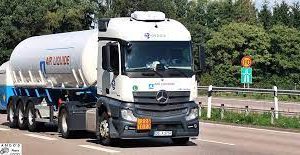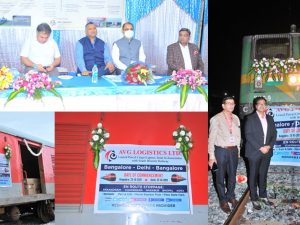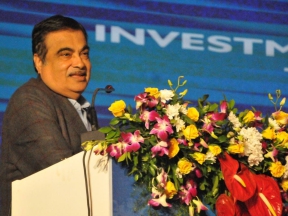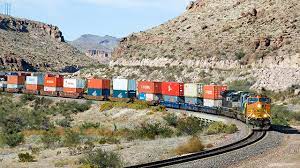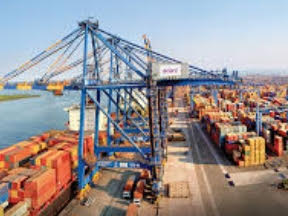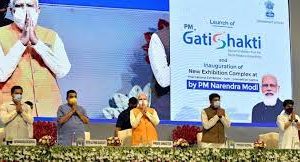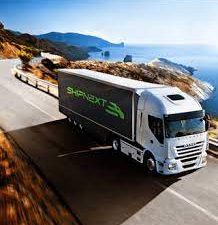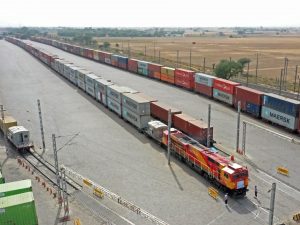Seven Mercedes-Benz Actros tractor units will be added to GEODIS’ fleet of prime movers in the Asia-Pacific Region (APAC). The leased vehicles are equipped with the latest security and safety technology and will be utilized on the logistics operator’s owned network in Southeast Asia. Supplied by the manufacturer’s Malaysian distributor, Hap Seng Trucks Distribution Sdn Bhd and leased from Euroasia Total Logistics (ETL), the new Actros 5 models will be the first of their type to be sold by Mercedes-Benz in Malaysia. GEODIS has recently expanded its road network in the region with service destinations in Vietnam added to its existing full and partial load service linking Singapore with Malaysia and Thailand. The network will eventually connect with Chinese markets on a day-definite, door-to-door basis delivering a road transport alternative to the more costly air, and slower ocean, options. Lakshmanan Venkateswaran, Sub-Regional Managing Director – South East Asia of GEODIS said, “The rapid expansion of our road mode offerings along the spine of Southeast Asia’s economic backbone has resulted in more than 50% increase in volumes since the service’s inception in late 2019. Linking Singapore to Kuala Lumpur and Bangkok, and now into Vietnam our owned network brings reliable transit-times and cargo security. This new equipment will further enhance these service attributes and aid the fast-growing businesses of our high-tech, retail, ecommerce and FMCG customers.”
Read More »AVG Logistics expands its logistics network through rail freight services
AVG Logistics has recently expanded its existing rail freight segment – running on various routes throughout the country – and has transformed into a multi-modal, end-to-end logistics services provider. “We have introduced rail services for express, FMCG, automotive, e-com and other industries on all major routes ex north to east , west to east, north to south & return. We have become a true multimodal logistics company, catering to all major industries for end to end solutions via road, rail, coastal, air and cold chain solutions.” said Vinayak Gupta, Vice-President, AVG Logistics. Maintaining the growth and pace of other existing modes of transportation, the leading homegrown logistics company has ventured into rail logistics with the aim to boost parcel business and give hastened yet safer and affordable services to their new as well as existing customers. Another factor considered for the crucial diversification of their service portfolio was the increasingly volatile fuel prices and their burgeoning effect on the operational costs for their customers.
Read More »National highway network to expand to 2L kms by 2025
Union Road Transport Minister, Nitin Gadkari, announced that the Indian national highway network will cover 2 lakh kilometres within 3 years’ time. He said, “The Indian government is working toward the development of a national highway network of 2 lakh kilometres by 2025”. He further added that the Centre is developing 22 greenfield access control expressways to reduce travel time. He was speaking about the role of infrastructure development in realising India’s $5 trillion economy goal and said, apart from cutting down travel time and fuel cost, highways also help in economic development of a region. This will be achieved through multi-modal connectivity that will provide seamless connectivity for the movement of people, goods and services from one mode of transport to another. Apart from speaking about the expansion of the Indian national highway network, the Union minister also claimed the Centre wants to bring down the cost of logistics to 10 percent from the current 14-16 percent of GDP. “It (cost of logistics in GDP) is 8-10 percent in China and 12 percent in European countries. If we bring this down to 10-12 percent in India, we can compete well in the international market,” Gadkari stated. Gadkari is also looking to raise the speed limit on national expressways from 120 km/hr to 140 km/hr, since expressways in India are currently being constructed to ensure safety and to prevent animals from entering them.
Read More »Manipur gets first freight train to boost commerce
With the first freight train reaching Manipur, Prime Minister Narendra Modi said this will enhance the state’s commerce and connectivity as goods from there will reach all parts of the country. The freight train arrived at the Rani Gaidinliu station in the north-eastern state on January 27, days after a passenger train from Silchar in Assam reached the Bongaichungpao railway station in Manipur. “Transformation of the Northeast continues. Manipur’s connectivity will be enhanced and commerce will be boosted. Wonderful products from the state can travel all over the nation,” Prime Minister Narendra Modi said on Twitter tagging a post of Union Minister for Development of North Eastern Region G Kishan Reddy. The Union minister along with his tweet also shared a video of the freight train arriving at the station. “Historic day for Manipur and entire North East, after 75 years of India’s Independence, first goods train reaches Rani Gaidinliu Railway Station, Tamenglong in Manipur. The Narendra Modi government is committed to enhancing infrastructure connectivity and economic prosperity in the NER (northeast region),” Reddy tweeted. The project, which includes the country’s longest train tunnel, will connect Imphal with Guwahati. Taking to Twitter, the Manipur Chief Minister N Biren Singh said, “In yet another milestone, the first ever goods train reached Rani Gaidinliu Railway Station, Tamenglong. The improvement in railway connectivity, under the close supervision of Hon’ PM Sh @narendramodi ji, will immensely improve the socio-economic condition of Manipur.”
Read More »NCLT approves APSEZ scheme to acquire Sarguja Rail Corridor
The National Company Law Tribunal (NCLT) has approved Adani Ports and Special Economic Zone (APSEZ) composite scheme to acquire Sarguja Rail Corridor Pvt Ltd(SRCPL) effective from its appointment date of April 1, 2021. APSEZ said that the company will now consolidate all its rail assets under a single business entity Adani Tracks Management Services Pvt Ltd. “This consolidation allows APSEZ, which is targeting 2,000 km of track length by 2025, to participate in Indian Railways PPP (public-private partnership) projects without having to compete with similar businesses in the Adani portfolio, a position that is in full alignment with the equity interest of minority shareholders,” it said. The statement said that once consolidated, SRCPL will add Rs 450 crore or five percent of APSEZ’s total Ebitda (earnings before interest, tax, depreciation, and amortization).
Read More »Gati Shakti National master plan portal to be ready by March end
A digital platform for the Gati Shakti national master plan of infrastructure projects will be ready by March 31, 2022. “All infrastructure projects will be mapped on the national masterplan [portal]. 75% of data from Central ministries on their infrastructure projects have already been uploaded. We are now training State governments to share their data. We are hopeful that the national masterplan [portal] will be ready by March-end,” said Amrit Lal Meena, Special Secretary, Department for Promotion of Investment and Internal Trade. The Gati Shakti national master plan (NMP) announced by Prime Minister Narendra Modi on October 13, 2021, is a centralized portal, that will be enabling “institutionalizing” planning, designing, and execution among 17 different Ministries in the Centre as well as States. Including projects worth ₹100 lakh crore, the program aims to cut down logistical costs and improve supply chains. “The national masterplan will show us geographical features such as forests, water bodies, mines, religious and archaeological sites and help us plan alignment of infrastructure projects so that we can circumvent these. Earlier, projects would be planned from within the confines of offices,” added Meena. The portal at present has already been populated by 370 “layers” of data critical for infrastructure planning, comprising information about the road, rail, port and inland waterways, aviation, natural gas pipeline, water supply pipelines, telecom infrastructure, forest wildlife, eco-sensitive zones, water resources, rivers, embankments, canals, dams, tourism sites, economic zones, industrial parks. It also comprises features like soil type, seismicity, etc. Once ready, ready, all detailed project reports of infrastructure projects will have to be prepared on the portal, which will be scrutinized and appraised by a Network Planning Group (NPG) at the Centre.
Read More »Gati Shakti aims to improve trade potential of Northeast
The recently announced Prime Minister of India’s Gati Shakti National Master Plan for Multi-Modal Connectivity is all set to revolutionise the way infrastructure and logistic development projects are planned and implemented in India. It will bridge huge differences between macro planning and micro implementation. The Northeast region of India, comprising eight states, namely Arunachal Pradesh, Assam, Manipur, Meghalaya, Mizoram, Nagaland, Sikkim and Tripura, share almost 12,000 kilometres of international border with Bangladesh, Bhutan, Myanmar, Nepal and Tibet, and is connected with the rest of India by a narrow chicken-neck, having a width of approximately 20 kilometres, which is popularly known as the Siliguri Corridor in West Bengal. This has primarily kept the Northeast India’s trade potentiality under-utilised, which is understood to be much more than the realisation of Rs 3,577 crores in 2019-20 and Rs 3364.4 crores in 2020-21 as per the data as provided by the Directorate General of Commercial Intelligence and Statistics, Government of India. As a result of this, there is a thrust on implementing a large number of Union and State Government funded infrastructure development projects in Northeast India with the purpose of improving its internal as well as external connectivity. As per the MoSPI, there are 143 ongoing projects in Northeast India, worth an original budget of Rs. 97,418 crores in the beginning of 2021.
Read More »FarEye recognised for Vehicle Routing & Scheduling & Last Mile Technologies
FarEye, a global SaaS platform transforming last-mile logistics, has been recognised as a Representative Vendor in Gartner ® Market Guide for Vehicle Routing and Scheduling and Last-Mile Technologies, 2021. This is the fourth consecutive mention for FarEye in the reputed Market Guide, published on 13 December 2021. Per Gartner, “The market for vehicle routing and scheduling and last-mile applications continues to grow as organizations are seeking ways to optimize fleet operations. The evolution of applications due to new business needs has made vendors expand their capabilities in certain areas or even specialize their products in a specific area like last-mile operations”. FarEye has been recognized as a Representative Vendor in the report. “At FarEye, we are dedicatedly working to make deliveries better for everyone. Our aim is to redefine the last-mile home-delivery landscape, making it customer-centric and efficient. We feel honoured to receive the fourth consecutive recognition in the Gartner Market Guide for Vehicle Routing & Scheduling and Last-mile technologies. With constant innovation we empower our clients to handle the growing volume of shipments, ensuring timely deliveries, optimum utilization of fleet and delivering superior experiences.” said Kushal Nahata, CEO & Co-founder, FarEye.
Read More »ShipNext Solutions raises INR 4.5 cr in pre-series A round
India’s first end-to-end online logistics platform in the long haul segment, ShipNext Solutions, has raised INR 4.5 Crores in its pre-series A round. Kerala-based Group Meeran, the promoters of the Eastern Group of Companies, led the round. ShipNext’s Machine Learning (ML)-based AI apps called ‘WeTruck’ and ‘WeTruck Partner’ automate the entire booking process for customers and operations for the service provider, ensuring seamless and transparent communication and service delivery. This tech-enabled match-making is ShipNext’s key focus area which leverages a state-of-the-art ML and AI-based system to assist customers with predictive modeling. From order placement to proof-of-delivery (POD) verification, invoicing, generating lorry receipt and real-time payments, WeTruck is the first app to offer the complete online procedure in the long haul segment. Clive Jose, Founder, and CEO, ShipNext Solutions, said, “At ShipNext, technology is central to how we leverage data to balance demand and supply. In logistics, often, customers find it challenging to obtain the correct pricing for their shipment and have apprehensions regarding multiple touchpoints and lack of transparency. To alleviate these concerns, we have set up a business model and a machine learning-based app that will offer the highest level of transparency to our customers and fleet owners. To simplify and minimize the learning curve on our app, we have introduced a chat-based model similar to WhatsApp that most of our users are familiar with and can easily understand. This investment is an endorsement in ShipNext’s platform as well as our vision to empower customers and partners with the only end-to-end paperless logistics app that ensures a completely online model of business.”
Read More »Maersk India records 43% growth in rail containerised cargo in 2021
Maersk became the pioneer of offering ‘Assured transit times’ with its rail solutions to customers. The forward-looking solutions developed are expected to aid the rising demand for sectors such as eCommerce through dedicated services. eCommerce, which has traditionally run on road transit, is expected to move towards rail even more in the near future as it gives assured transit for time-sensitive cargo. “Being committed to connecting and simplifying our customers’ supply chains meant we had to go beyond solutions that are on the menu card. We wanted to create exciting offerings that would delight our customers, especially in the tough pandemic situation that we have been operating in”, said Vikash Agarwal, Managing Director, Maersk South Asia. He added, “Having flagged off 13 new services successfully over the year, Maersk is truly proud to have designed and implemented what customers needed. And it doesn’t end there – with the new environment-friendly rail services, in 2021 we reduced carbon footprint that is equivalent to the emissions from a car being driven for around 60,000 km.” Maersk witnessed 43% growth in the movement of containerised export cargo on rail in 2021 and 23% growth on rail for import and export combined. Maersk plans to develop further on the foundation of the rail solutions in 2022. “Rail has always been considered as a second alternative to road transport despite being safer and faster. Last year we have created 273 new corridors with rail as the backbone and connected our customers on this highly efficient mode of logistics all the way to their hubs of convenience. Having carried more than 50,000 containers (twenty feet equivalent units / TEUs) over and above the previous year and …
Read More » Cargo Breaking News
Cargo Breaking News
